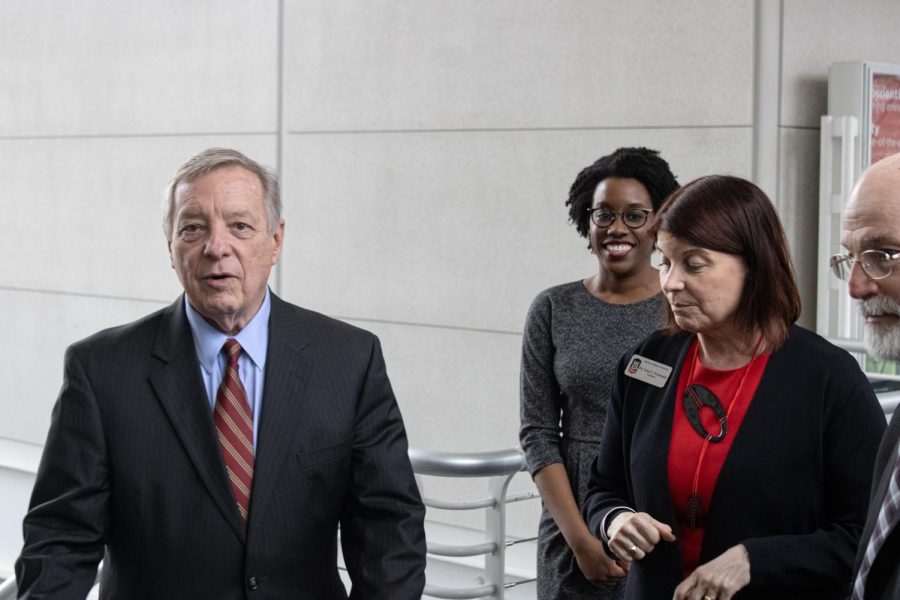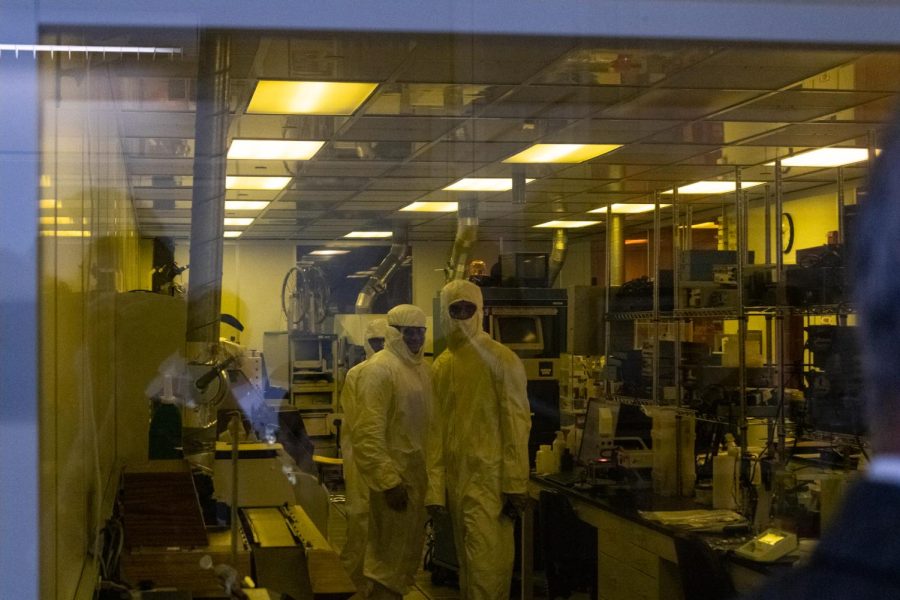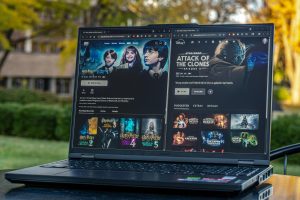Members of Congress visit NIU, update microchip funding
(From left) Sen. Dick Durbin, Rep. Lauren Underwood and NIU President Lisa Freeman begin their tour of the clean room lab Wednesday on the second floor of the NIU College of Engineering and Engineering Technology. Underwood previously visited the lab on Jan. 20 after she secured a grant for NIU, one of the 15 projects selected for Community Projects Funding in May 2022. (Sean Reed | Northern Star)
April 5, 2023
DeKALB – Sen. Dick Durbin and Rep. Lauren Underwood provided an update on the $1 million in funding for the Advanced Electronics Initiative and the $1.5 million in funding for a new microchip fabrication lab in the College of Engineering and Engineering Technology’s clean room.
The first round of funding and inspiration for the modernization was a part of the recent Biden administration’s CHIPS and Science Act which invests $52.7 billion in the U.S. semiconductor industry.
“It’s not just the difference between a college education and math, but it’s the difference between a student being able to be involved in doing undergraduate research versus having to work two jobs,” NIU President Lisa Freeman said.
Durbin and Associate Professor of electrical engineering Venumadhav Korampally both expressed the importance of moving away from relying on foreign exports for microchips in the U.S. and the need for more microchip production and fabrication domestically.
“This is something we started breaking the ground for this innovation and then ended up losing the control of the industry to foreign groups, particularly in Taiwan, that are developing these chips while we retreat,” Durbin said. “So the decision was made in the last Congress: America isn’t going to retreat anymore.”
Underwood discussed the importance of investing in DeKalb and noted specific positives in choosing NIU in relation to the economic advancements that DeKalb County has seen.
“A lot of technology companies are building facilities here in the county (DeKalb) and investment in the lab here,” Underwood said. “We have a workforce that will be able to pick up opportunities within the region.”
Korampally said that the funding will be used for the conversion of the clean room lab into the modernization of a Microelectronic Research and Development Lab. Major projects include microchips for infinite hearing aids and paper patches that can detect your vital signs at home.
Graduate electrical engineering student Enosh Lim has worked on the project to construct a microchip that can aid deafness or hearing loss in infants.
“This hearing aid is actually a 10-year plan. We’re going from conceptual to a device – that’s my part – and we’re trying to decrease all these components into a single chip,” Lim said. “We’re trying to downsize it to a really, really 3-dimensional object. It’s really gonna resemble a Band-Aid. You can just stick it on someone and they can hear.”








